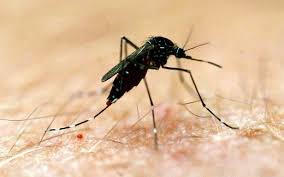 Ghana has been selected among three countries to pilot a new vaccine that acts againstPlasmodium
Ghana has been selected among three countries to pilot a new vaccine that acts againstPlasmodium
Ghana has been selected as one of the three countries to pilot a new vaccine that acts against Plasmodium Falciparum, the most deadly malaria parasite, known globally; and most prevalent in Africa.
Mosquirix, said to be the first malaria vaccine to obtain a positive scientific opinion by the European Medicine Agency (EMA) – a stringent medicine regulatory authority, was developed through a partnership between GSK and the PATH Malaria Vaccine Initiative (MVI).
It has been supported by the Bill and Melinda Gates Foundation and a network of African research centres.
The two other countries in Sub-Saharan Africa, playing a role in the pilot implementation programme are Malawi and Kenya.
These were made known, when the Malaria Vaccine Implementation Programme under the auspices of the Ghana Health Service, in partnership with the World Health Organization (WHO), the Food and Drugs Authority (FDA), met with senior editors last Friday in Accra.
The pilot implementation programme is to most importantly, evaluate the feasibility of delivering the required 4 doses of the vaccine; the impact of the vaccine on lives saved; and the safety of the vaccine in the context of routine use.
The programme, which is being coordinated by WHO, will be used to assess the extent to which Mosquirix protective effect shown in advanced clinical trials, can be replicated in real life settings.
The vaccine will be taken as an injection in four doses to children, with the first dose given as soon as possible after the age of five months.
Ghana, which was considered due to several factors, will test the vaccine between 6, 7, 9 and 24 months of age.
Though the programme, has been scheduled to commence in 2018, officials say, there will be serious preparatory work that is going to be carried out before the pilot programme begins.
Various partners of WHO, have, however, begun intensive discussion with national stakeholders since 2016, leading to the selection of the three countries.
Aside being a malaria endemic country, Ghana applied to be part of the implementation programme, based on her experience with the vaccine during the clinical trials.
Other reasons were the country’s high malaria burden and well-functioning malaria and immunization programme, a desire to engage in the vaccine pilot programme by national stakeholders and previous participation in the advanced (Phase 3) clinical trials for Mosquirix.
Ghana, has a robust regulatory, ethical and immunization systems and infrastructure also added to the reason why it was selected as part of the three countries on the continent.
The initiative has become necessary, because of the huge number of malaria cases and the needless deaths worldwide.
According to WHO, there were 212 million malaria cases globally in 2015 with 429, 000 deaths recorded. Africa, which topped majority of the aforementioned figures, had children under the age of 5.
In Ghana, malaria causes about 2, 000 deaths annually, approximately 48 percent of which afflict children under the age of five.
The WHO, has already mobilized funding for the first phase of the pilot programme beginning this year to 2020 from the Global Fund.
Mosquirix is going to be considered as a complementary intervention, meaning it would be used in addition to existing non-vaccine malaria preventive measures.